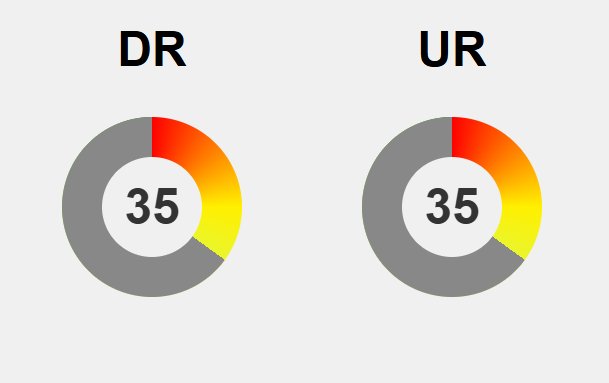Living vicariously through others offers fleeting bursts of joy, but at what cost to our own growth and fulfillment? In an age where social media inundates us with curated highlights of success and adventure, it’s easy to celebrate others’ wins—yet this can subtly lead to stagnation, comparison, and diminished motivation. Are we passive spectators in our own lives, allowing envy and self-doubt to overshadow our aspirations? This exploration reveals that while vicarious enjoyment stimulates our empathy and provides emotional highs, excessive reliance on it can erode resilience and authenticity. The key lies in transforming admiration into actionable motivation—setting meaningful goals, celebrating genuine progress, and maintaining focus on personal development. When we balance celebrating others with active participation in our own journeys, we foster a sense of purpose, confidence, and sustainable happiness. Could learning to harness this balance unlock a fuller, more fulfilled life—one rooted in our own achievements rather than fleeting vicarious pleasures?
Living Through Others: The Double-Edged Sword of Vicarious Fulfillment
Have you ever found yourself genuinely excited when a friend lands a new job or when your favorite athlete scores a big win? In today’s connected world, these moments are almost unavoidable. Social media makes it effortless to follow others’ successes, often making us feel like we’re sharing in their triumphs. That quick boost of happiness can be uplifting, but it raises an important question: does living vicariously through others help us find fulfillment, or does it hold us back from pursuing our own potential?
Living through others has become second nature. Thanks to smartphones and social platforms, we’re constantly observing curated highlights—vacations, promotions, milestones—that can inspire, but also tempt us into comparison. It’s natural to feel motivated by others’ achievements, yet there’s a fine line between admiration and envy. When we spend too much time watching others succeed without taking action ourselves, we risk slipping into passivity, where our own goals fade into the background.
This habit of vicarious living can have subtle but powerful effects on our sense of purpose. While celebrating others’ wins may temporarily lift our spirits, overdoing it can breed feelings of stagnation. Instead of pursuing our dreams, we become spectators, watching life unfold from the sidelines. This detachment can erode motivation, making it easier to dismiss our own ambitions as less important or out of reach.
Emotionally, living vicariously can create a confusing mix of feelings. Genuine happiness for others can easily be overshadowed by comparison, envy, or self-doubt. The more we indulge in these comparisons, the more likely we are to believe we’re falling behind, which can sap our confidence and energy. Without a conscious effort to focus on our own progress, we might find ourselves caught in a cycle of dissatisfaction that hampers real growth.
The key is recognizing when vicarious enjoyment stops being inspiring and starts becoming a distraction. While it’s healthy to celebrate others’ successes, it’s equally important to stay anchored in our own journey. Turning admiration into motivation—by setting personal goals and taking concrete steps—can transform fleeting moments of joy into lasting fulfillment. Finding that balance is essential if we want to grow and create a life that feels truly our own.
Understanding Vicarious Living: Roots, Psychology, and Digital Influence
Living vicariously is rooted in our deep-seated need for connection, excitement, and shared experiences. It’s about feeling joy, pride, or inspiration by observing or imagining the lives and achievements of others—whether through social media, movies, sports, or stories. This behavior activates our empathy and curiosity, allowing us to connect with others’ successes without directly participating. Essentially, it’s like borrowing a little of their triumphs to boost our own mood.
Psychologically, living vicariously stimulates the brain’s reward system. When we see someone succeed or face challenges, our brain releases feel-good chemicals like dopamine, creating a sense of happiness. That’s why vicarious pleasure can be so compelling—it offers a safe way to experience excitement and emotional highs without the risks or effort involved in real-life pursuits. Humans have always loved storytelling—myths, legends, theater, and literature—because they let us live through adventures, heroes, and triumphs from afar.
Today, social media has amplified this tendency. Platforms like Instagram, TikTok, and YouTube flood us with curated moments—vacations, career milestones, personal victories—that invite us to follow and emotionally engage with others’ lives in real time. While this constant stream of content fosters connection and inspiration, it also blurs the line between admiration and comparison. It’s easy to measure our own lives against these polished highlights, often leading to feelings of envy or inadequacy. This digital environment makes living vicariously effortless, but it can also distort our perceptions of success and happiness.
The roots of vicarious living go deep into our evolutionary history. Early humans relied on storytelling and shared culture to strengthen bonds and transmit knowledge. These stories of heroism, exploration, and struggle helped communities feel connected and inspired. As civilizations advanced, theater and literature became mediums for audiences to experience distant worlds and characters’ lives vicariously. The spread of mass media, from radio to television, further expanded this experience, making it easier than ever to immerse ourselves in others’ successes and struggles.
In the modern digital landscape, this tendency becomes even more immersive. We follow influencers, celebrities, and friends’ journeys with relentless immediacy. Watching someone’s adventure or personal victory triggers emotional responses that lift our spirits. However, excessive exposure can lead to comparison fatigue, making us feel like we’re falling behind or missing out. While vicarious experiences can motivate, they often do so at the expense of our own focus and effort. Recognizing this balance allows us to enjoy the benefits of connection without losing sight of our own growth.
The Impact of Vicarious Living on Personal Growth and Emotional Well-Being
Living vicariously can have a profound effect on both our personal development and emotional health. Watching others succeed or face challenges often gives us a quick burst of inspiration, lifting our spirits and sparking motivation. Seeing a friend land a new job or a favorite athlete win a big game can make us feel more hopeful about our own possibilities. However, when this becomes a habit, it can subtly shift into passivity, where we become spectators rather than active participants in our lives. Over time, this tendency may cause our own ambitions to fade into the background, replaced by a reliance on the achievements of others for our sense of worth.
This passive consumption of others’ successes can breed complacency. Instead of taking steps toward our goals, we find ourselves content to watch from the sidelines. Comparing ourselves to curated highlights on social media often fuels feelings of envy or inadequacy, which erode confidence rather than build it. The more we indulge in these comparisons, the more likely we are to dismiss our own potential, convincing ourselves that our dreams are out of reach. This mindset can create a cycle where motivation diminishes, and personal growth stalls.
Emotionally, living vicariously can also distort our resilience. When we invest too heavily in others’ stories, we miss out on the valuable lessons that come from facing our own setbacks. Success is not merely about observing others win; it’s about overcoming obstacles ourselves. Without experiencing struggle and perseverance firsthand, we risk losing the stamina needed to push through difficulties. This can lead to feelings of stagnation, where growth feels distant and unachievable because we’re not actively engaging in the process.
Furthermore, constant exposure to others’ highlight reels can stir a confusing mix of emotions. Genuine happiness for someone else can quickly turn into envy or self-doubt if we’re not careful. Comparing our behind-the-scenes to someone else’s polished presentation often leaves us feeling like we’re falling behind. This emotional drain reduces our motivation and can deepen dissatisfaction, making it harder to recognize our own progress. Instead of inspiring us, these moments of vicarious joy might undermine our belief in our ability to succeed.
Recognizing when vicarious pleasure shifts from motivation to distraction is key. It’s vital to celebrate others’ successes, but equally important to stay rooted in our own journey. Turning admiration into concrete action—setting goals, facing challenges, and celebrating small wins—transforms fleeting inspiration into genuine growth. This shift from passive observation to active participation helps build resilience, confidence, and a sense of authentic achievement. When we focus on our own development, the emotional benefits of vicarious joy become a catalyst rather than a distraction.
For those interested in turning their admiration into action, exploring ways to enhance personal growth can be highly beneficial. Learning about strategies to boost self-confidence and develop resilience can help shift focus inward and foster a more proactive mindset. To discover practical steps for overcoming passivity and embracing your own journey, you might find this resource on personal growth particularly helpful.
Strategies for Achieving Balance: Turning Admiration into Action
To maintain a healthy balance, start by setting clear personal goals rooted in what truly matters to you. When your objectives reflect your passions and values, it becomes easier to celebrate others’ successes without feeling like you’re falling behind. Break these goals into manageable steps so progress feels tangible and motivating, helping you stay focused on your own journey rather than getting lost in comparison.
Practice genuine celebration whenever someone lands a new opportunity or hits a milestone. Congratulate them sincerely and focus on the effort and qualities that contributed to their success. Let their achievements inspire you, not diminish your confidence. Asking yourself what lessons you can take from their experience transforms admiration into positive energy, fueling your motivation to grow.
Be mindful of your emotional responses, especially when envy or self-doubt creep in. Notice these feelings without judgment and shift your focus to gratitude for your own progress. Recognizing what you’ve already achieved fosters a sense of worth and keeps negative emotions from taking over. This mental shift makes it easier to stay motivated and maintain a positive outlook.
Reducing your social media use can make a significant difference. If scrolling often leaves you feeling like you’re missing out or falling behind, consider setting boundaries—limit your screen time or unfollow accounts that trigger comparison. Use the extra time to pursue activities that push your growth, such as learning new skills, engaging in hobbies, or nurturing relationships, which provide lasting fulfillment.
Active participation in your pursuits is another powerful strategy. Instead of just observing others’ successes, seek out your own challenges. Enroll in a course, start a new project, or try something outside your comfort zone. These efforts build confidence and resilience, transforming success from a distant ideal into something you create through your own effort.
Surround yourself with people who support and inspire your ambitions. Sharing your goals with friends, mentors, or communities that encourage growth reinforces your commitment. Their encouragement reminds you that your journey is unique and worth investing in, even when progress feels slow.
Finally, regularly reflect on your achievements, big or small. Keep a journal or set aside time each week to acknowledge what you’ve accomplished. Celebrating these wins keeps your motivation high and shifts your focus from others’ successes to your own development. When admiration fuels action, it becomes a powerful catalyst for genuine progress.
Real-Life Impacts: How Balanced Vicarious Joy Enhances Daily Happiness and Fulfillment
Balancing vicarious enjoyment with personal growth has a real impact on daily life and our overall happiness. When we learn to genuinely celebrate others’ successes without letting them overshadow our own goals, we foster a mindset rooted in authenticity and motivation. This shift makes us see others’ achievements as sources of inspiration rather than threats, helping us stay focused on our unique paths. As a result, we’re more likely to take meaningful steps forward, turning admiration into motivation rather than distraction.
In everyday moments, this balanced approach encourages us to act rather than remain passive spectators. When a friend lands a new opportunity, truly celebrating their achievement can motivate us to pursue our own ambitions. Moving from envy or comparison to encouragement strengthens relationships and boosts confidence, reinforcing that our growth is worth prioritizing. These shared successes create a sense of community and collective progress that enhances our well-being, making each achievement a stepping stone rather than a setback.
Long-term happiness benefits from focusing on progress rather than constantly measuring ourselves against others. When we value our personal development and appreciate others’ wins, we build a sustainable sense of purpose. Small wins accumulate over time, increasing confidence and resilience that propel us toward bigger goals. This mindset makes setbacks feel less defeating because our happiness isn’t solely dependent on external validation but is rooted in the effort and growth we cultivate daily.
Maintaining this perspective also reduces stress and emotional exhaustion. Instead of obsessing over what others have or have achieved, we channel our energy into activities that foster growth—learning new skills, nurturing relationships, or pursuing passions. When success is rooted in our own efforts, it becomes more meaningful and enduring. This focus not only enhances our sense of fulfillment but also encourages a healthier outlook on life, where joy comes from within rather than external comparisons.
When we strike this balance, our daily experiences become opportunities for genuine joy and self-improvement. Moments of vicarious pleasure transform into catalysts for motivation, pushing us to take action rather than just watch from the sidelines. Over time, this approach leads to a more authentic, fulfilling sense of happiness—one built on personal achievement, meaningful connections, and the shared pursuit of growth. In this way, we move beyond fleeting moments of vicarious joy to create a life that truly reflects our potential.




